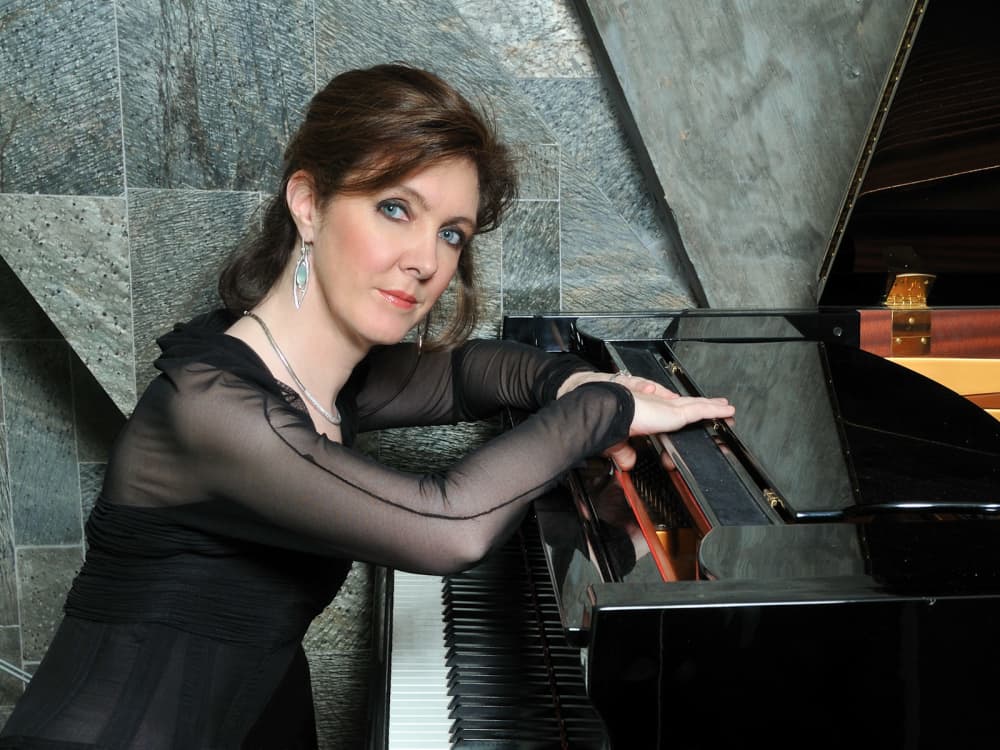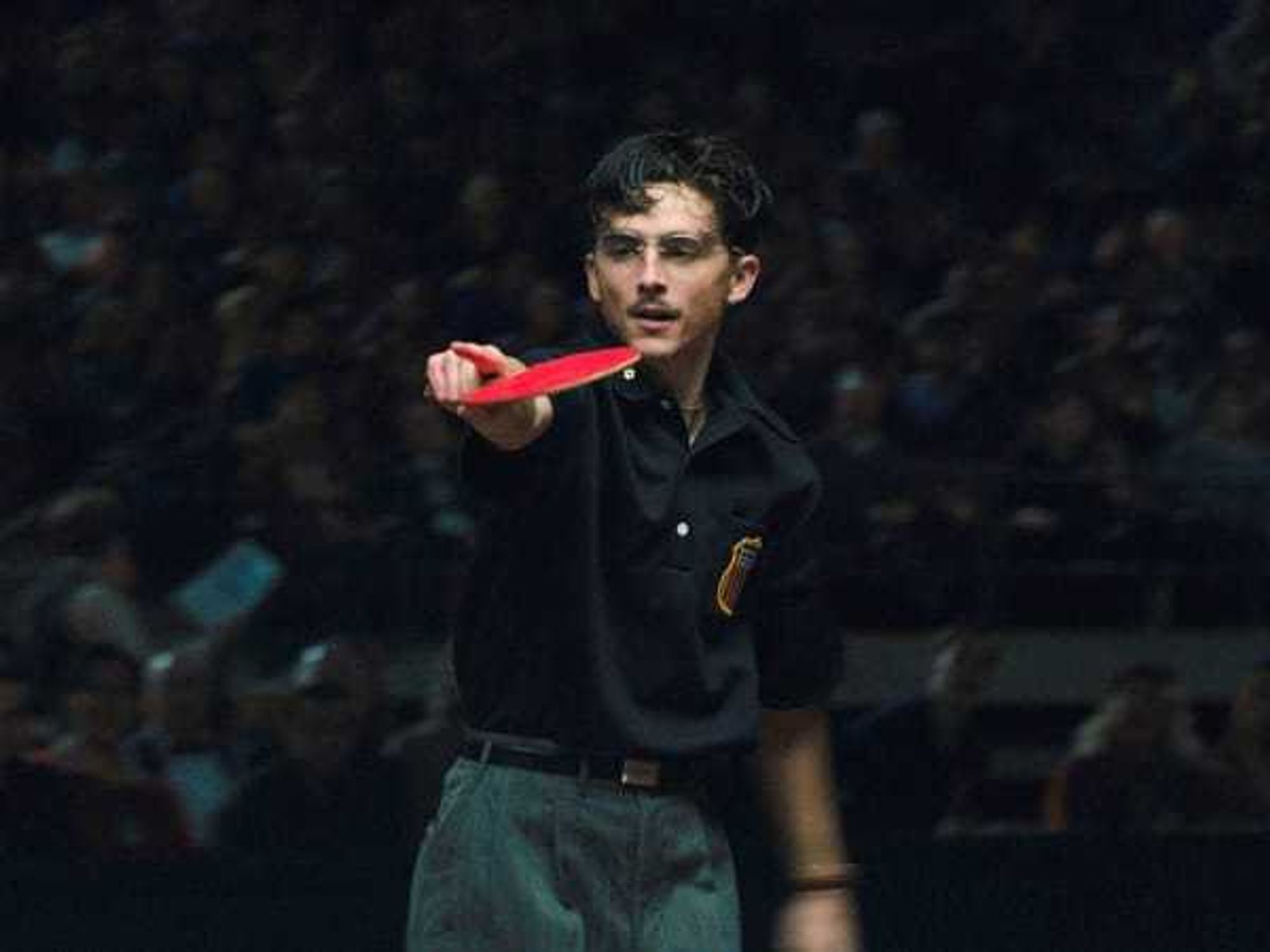A Weekend Fiesta
Inside the brain of Alecia Lawyer: Classical music difference maker isn't afraidto take fiery risks
 Anne-Marie McDermott will perform Mozart's Piano Concerto No. 20 in D minor withthe River Oaks Chamber Orchestra.Photo courtesy of Anne-Marie McDermott
Anne-Marie McDermott will perform Mozart's Piano Concerto No. 20 in D minor withthe River Oaks Chamber Orchestra.Photo courtesy of Anne-Marie McDermott Maestro Josep Caballé Domenech will make his ROCO debut.
Maestro Josep Caballé Domenech will make his ROCO debut. Founder and principal oboist Alecia Lawyer concentrates on finding musiciansthat share a common vision.
Founder and principal oboist Alecia Lawyer concentrates on finding musiciansthat share a common vision. She hires the type of personalities that engage on and off the stage so thatconcert goers connect with the musicians first, the art second.
She hires the type of personalities that engage on and off the stage so thatconcert goers connect with the musicians first, the art second.
It's the philosophy of many marketers of large classical music ensembles that the soloist or the plat de résistance sells tickets — butts in seats as the industry endearingly puts it. Forget the potatoes and gravy, it's all about the meat of the program, whether that's brisket as in a pops concert, a porterhouse cut as in Beethoven's Symphony No. 5, or a hefty chateaubriand as in Stravinsky's Le sacre du printemps or a maven like Lang Lang.
That the renegade twosome that presides over the River Oaks Chamber Orchestra (ROCO) chooses not to follow those rules of wisdom is akin to pepper steak minus the protein but with tofu. Sure it can work, but why, oh god, why?
Managing director Terri Golas and founder and principal oboist Alecia Lawyer have a tendency to dance to a different tune. And as it turns out, there's method to their madness.
As titles like "Opener" or "Finale" do nothing more than label where in the season the concerts occur rather than communicating anything about the music or curating strategy, Golas and Lawyer are certain that orchestra subscribers seek the "ROCO" experience and not what's on the playbill.
"We look for collaborators with a different spirit, an entrepreneurial attitude, a joie de vivre such that together we transcend the industry norm."
The first 2012 fall concert, themed "Fiesta!"(taking place this Saturday and Sunday), may hint that the program was crafted by amassing Latin compositions. And if this be another type of ensemble I'd say this was a desperate cry to appeal to a wider demographic, or to check off some sort of a grant stipulation that requires reaching out on the name of diversity — as if this type of superficial way about things is even the least bit effective.
Because if it were, classical music audiences would look differently.
Lawyer arrived at "Fiesta" after the repertoire was chosen in consultation with guest conductor Josep Caballé Domenech and pianist Anne-Marie McDermott — and not prior. ROCO has performed themed concerts in the past, yet only when it makes sense, when it feels genuine.
Instead, Lawyer concentrates on finding musicians that share a common vision. She hires the type of personalities that engage on and off the stage so that concert goers connect with the musicians first, the art second. Now that ROCO enjoys a national reputation for their approach in community building — read that: beyond just cultivating an audience — not a day that goes by without someone soliciting to perform or conduct this chamber orchestra.
"We look for collaborators with a different spirit, an entrepreneurial attitude, a joie de vivre such that together we transcend the industry norm," Lawyer says. "The vibe may be hard to explain to someone who isn't familiar with our model."
There's a bit of the "just come hang with the band" style of rehearsals, during which musicians are encouraged to take artistic and personal risks.
"It's bombastic, move in your seat, you can't sit still, relentless music."
"ROCO is a safe space where we can take the type of chances that give listeners chills," Lawyer continues. "It's not a perfect CD-quality performance people want, that's not what excites anyone in live performance.
"It's the drama of what can happen — even if that means making a few mistakes along the way."
It's not often that ROCO contracts a piano soloist as she treats the principal players in the orchestra as virtuosos in their own realm. In the recent past, Sandor Ostlund premiered Scott McAllister Rhapsodie for String Bass and Chamber Orchestra, cellist Richard Belcher performed Haydn's Concerto for Cello in C Major and Nathan Williams intoned Copland's Clarinet Concerto." In this light, ROCO musicians are not indistinguishable and interchangeable, a crisp contrast from a bubbling trend of turning symphony orchestra parts into commodities.
No single ensemble is immune from that; not even the Chicago Symphony Orchestra.
Anne-Marie McDermott and Lawyer are two notes on the staff — as in two peas in a pod — and because they juggle concert life with administrative duties, the synergies that emerge from mastering onstage and offstage responsibilities add to their prowess across both.
McDermott is a Chamber Music Society of Lincoln Center artist, appears often with Nadja Salerno Sonnenberg and has embraced two relatively new music festivals: The Ocean Reef Chamber Music Festival in Key Largo, Fla., and The Avila Chamber Music Celebration in Curacao. That's in addition to serving as artistic director of Bravo! Vail Valley Music Festival. She was in Houston in March to perform Debussy's L'isle joyeuse and Chausson's 45-minutes Concerto for violin, piano and string quartet as part of Da Camera's "Debussy Paris" program.
"It's not the music, it's the experience. Actually, it's the people."
For ROCO, McDermott will perform Mozart's Piano Concerto No. 20 in D minor, the only non-festive composition in the program. Just consider this tragic key was reserved for his Requiem and for the hell scene in Don Giovanni — Don Juan if you long to makes a case for a Spanish analogy.
That's where Barcelona-born Josep Caballé Domenech, who will be making his ROCO debut and has previously conducted the Texas Music Festival Orchestra and the Houston Symphony, comes in. He suggested the music of 19th century composer Juan Crisóstomo Jacobo Antonio de Arriaga y Balzola — Arriaga for short — nicknamed the "Spanish Mozart." Though his string quartets are cited as his best works, his Symphony in D, a melange of Mozart and early Beethoven, is one of the largest surviving oeuvres.
Add Ginastera's Suite Estancia and Turina La oración del torero and there you have a program that has roots in Spanish folklore.
"It's bombastic, move in your seat, you can't sit still, relentless music," Lawyer says.
Though Lawyer doesn't want to give it away, she hints that the surprise piece, something that ROCO programs in every concert, has both passion and fire. I suppose those are words that can describe just about all Spanish music out there.
I guessed correctly on the surprise, but I am sworn to secrecy not to tell.
"It's not the music, it's the experience," Lawyer reminds me. "Actually, it's the people."
___
The River Oaks Chamber Orchestra presents "Fiesta!" on Saturday at 5 p.m. at The Church of St. John the Divine ($25 adults, $10 students) and on Sunday at 7 p.m. at Crighton Theatre in Conroe ($15-25).
